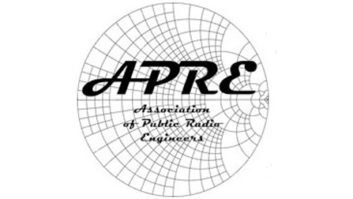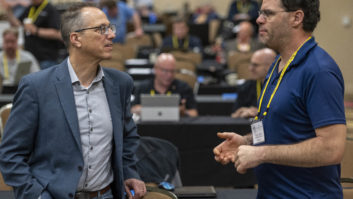The launch of the first “Save America’s Radio Heritage” conference saw a greater turnout than expected, with a total of roughly 300 attendees over two days in the nation’s capital last week.
The event, held at the Library of Congress and the University of Maryland, focused on the state of radio preservation, but the conference was more than just about the process of preserving historical recordings and other radio documents, but sharing some of America’s unique uses of the medium.

Attendees pack the Library of Congress’ Mumford Room during one of the event’s keynotes (Photo credit: RPTF)
The Radio Preservation Task Force calls itself the first national radio history project of the Library of Congress. It grew out of the Library’s ambitious National Recording Preservation Plan, published in 2012. The task force says radio is “perpetually declared to be a dying medium” but nevertheless attracts dedicated listeners and commercial and public support. The organizers have said radio’s history is a chronicle of culture and a potential trove for historical researchers. The national plan in 2012specifically called for a symposium to discuss the challenges of preserving American radio broadcasts; last week it was put into action.
Some of radio’s uses were shared during a panel “Radio and National Heritage.” One example of what is being preserved, perhaps unsurprisingly, comes from National Public Radio. NPR has been archiving recorded content dating to 1971, but it is attempting to save more than just its historical audio materials. Jane Gilvin, an NPR data and search strategist, and Ayda Pourasad, archives and data analysis specialist, said the organization has worked to save documents, props and other physical materials that have been a part of its more than 45-year history.
The process has been more difficult from another American perspective. Michael Keith of Boston College said only a small percentage of Native American radio content has been saved over the years. Speaking primarily about non-commercial radio stations that operated on reservations, Keith says “virtually nothing” from those broadcasts has been archived. It was revealed, however, during a Q&A session that the Library of Congress does have around 140 recordings of Native American broadcasts from the 1940s and ’50s that were produced by the University of Oklahoma.
Other examples of radio recordings that have been or are being saved include one of the first quiz show-like programming from Vox Pop radio, and government-sponsored programs from the 1930s/’40s like “Brave New World” and “Americans All, Immigrants All.”
“What we want as a record for future generations,” said Paddy Scannell, professor of communication studies at the University of Michigan and keynote speaker at the event, “is what it was like for people living at the time.”
According to Josh Shepperd, national research director for the RPTF, the organization will continue to move forward with its preservation efforts. Those will include grant-writing initiatives with non-commercial stations and university archives; educational curatorial projects to assess commercial and non-theatrical content with archival groups; a national letterhead board to begin identifying archival sites to store endangered radio and oral history collections; and a data interface where projects can converge for public, academic and librarian access at one site.










